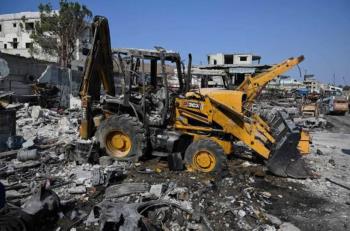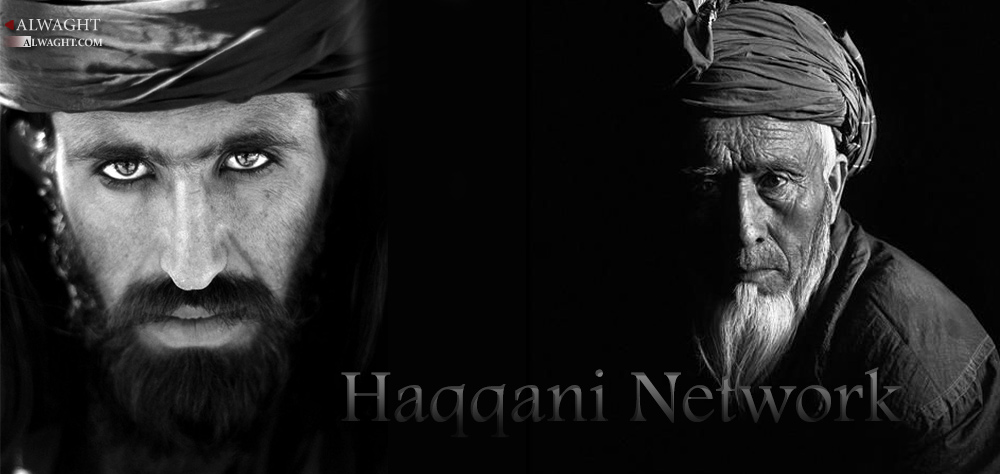Alwaght- One of the leading insurgent groups in Afghanistan is the Haqqani Network. Since occupation of the country in 2001, the group has been held accountable for some of attacks against the American forces in the capital Kabul. An ally of Taliban, Haqqani Network is also blamed for a wide range of assaults against the NATO forces as well as the national army of Afghanistan.
Jalaluddin Haqqani, the leader of Afghanistan mujahedeen who in the 1980s fought against the Soviet Union’s Red Army in the country, led the group up to 2014, when he died of natural causes as Pakistan's Dawn news agency quoted “reliable” sources in the militant group. His son Sirajuddin Haqqani succeeded him in leadership.
It is not clear yet where is the headquarters of the Network, however, it seems that Pakistan’s Northern Waziristan province in tribal regions of the country is the main base of its insurgents. The guerrilla force has been traditionally active in various border areas of Afghanistan such as Paktia and Khost provinces. The group was initially known as Khalifa group.
The Network is a Pashtun group, having its roots in the Zadran tribe which is based in Paktia. The insurgent network was fully engaged in the Afghan resistance against the invading Soviet Union. In the late 1980s, President Ronald Reagan of the US invited the Jalaluddin Haqqani and other mujahedeen to the White House to offer them support. After Soviet army’s withdrawal from the country, Haqqani along with other offshoots of Taliban seized the rule of Afghanistan in mid-90s on the strength of covert support of the US and overt support of Pakistan. After US invasion in early 2000s, the group transformed to a staunch enemy of Washington, fighting the US forces in Afghanistan to date. Its hostility against the American forces even doubled when the US in an air operation allegedly killed al-Qaeda leader Osama bin Laden in May 2011. In response, Haqqani Network attacked Bagram Airfield used by the American forces just two weeks after word spread that al-Qaeda leader was killed.
The Haqqanis, speaking Pashtun and being Hanafi Sunnis, are currently funded by a group holding close relations with Saudi Arabia.
The reports on the number of its forces vary, but the common word is that the group has 4,000 fighters. Afghan sources also say that Haqqani Network has the potentials to raise a 10,000-man army as it can make alliance with other insurgent groups.
The Americans argue that it serves as an arm of the Pakistan’s Inter-Intelligence Services (ISI) for the national Pakistani interests in Afghanistan and elsewhere, something Islamabad leaders have repeatedly rejected. During the past two years, Washington has conducted several drone attacks in Pakistan’s tribal regions especially Waziristan, targeting hideouts of the Network. Islamabad officials repeatedly protested the American drone raids.
The Haqqani Network is allied with several militant group in Afghanistan and Pakistan. Quetta Shura, Shamshato Bajwa Council, and Miranshah Council are its assistants. The Quetta Shura is based in Pakistan’s Quetta city in Balochistan province, led by Mullah Mohammed Omar, a relative of Osama bin Laden. The relativity was seen as the main drive behind the Quetta Shura leader’s avoiding to hand in a-Qaeda head to the US after the invasion. Being the most fundamentalist ally of Haqqani Network, the Quetta Shura is of influence in eastern Afghanistan, Kandahar, and Helmand provinces and aspires to form an Islamic government in Afghanistan. An irreversible opponent to the central Afghan government, the Quetta Shura presses for the foreign forces' withdrawal from Afghanistan.
Another significant ally to the Haqqani Network is Shamshato Bajwa Council based in Khyber Pakhtunkhwa (also Sarhad) province and particularly provincial city of Peshawar. A former anti-Soviet force, the Shamshato Bajwa Council is led by Gulbuddin Hekmatyar. The group is known for its moderation, compared to the Haqqani Network and Quetta Shura, and prefers to be recognized as an affiliate of Hekmatyar's Hezb-e-Islami rather than an offshoot of Taliban.
Despite formal hostility to the US, some analysts claim that behind the scenes the Haqqani Network serves the American interests in the region at least by its performance. Washington takes advantage of the waves of terror by the Haqqani Network as it needs to find excuses to deploy more forces to Afghanistan and keep them to justify fight against fundamentalist militants. A failure to analyze Afghanistan developments beside penetration of Takfiri ideology drives the militant group’s killing of true anti-American mujahedeen. This by itself is profitable for the Americans.



























